On the evening of February 5 (the eighth day of the Lunar New Year), hundreds of worshippers gathered at Phuc Khanh Pagoda in Dong Da District, Hanoi, for the traditional La Hau star appeasement ceremony.
As the temple grounds reached full capacity, many people stood outside on Tay Son Street, bowing in prayer from a distance.
A centuries-old tradition to dispel misfortune
Many arrived early to secure a seat and register their names for the ritual. The pagoda provided mats and chairs for attendees, ensuring they could participate comfortably.
According to traditional beliefs, La Hau is considered an inauspicious star, bringing potential troubles related to lawsuits, disputes, illnesses, or financial difficulties. To ward off these negative influences, many people perform appeasement rituals at the beginning of the year, praying for peace and protection.
Despite the chilly 17°C temperature, many worshippers sat outdoors for at least two hours, patiently waiting as monks chanted prayers and conducted the ceremony.
At 7:00 PM, the ritual began. Hundreds of devotees, their hands pressed together in prayer, solemnly recited chants, seeking blessings for a smooth and trouble-free year.
Visitors from near and far
Among the crowd was a group of young visitors from Ho Chi Minh City, who took the opportunity to join the ritual while on their Lunar New Year holiday in Hanoi.
To prevent overcrowding and ensure a more orderly ceremony, Phuc Khanh Pagoda has extended the La Hau star appeasement services throughout the entire first lunar month, rather than concentrating them on a single night as in previous years.
Due to the limited space within the pagoda, many attendees had no choice but to stand along the pathways, bowing in prayer from a distance.
"I came here to pray for peace and to dispel the bad luck associated with La Hau. To participate in the ritual, I had to register on the fourth day of Tet. Each appeasement ceremony costs between $6 to $12," shared one worshipper.
As the temple reached full capacity, the pagoda doors were closed, leaving many devotees standing outside the entrance and even spilling onto Tay Son Street, praying from afar.
A long-standing practice for peace and prosperity
Doan Ngoc Anh, a resident of Thanh Xuan District, hurried to the pagoda after work, joining those praying from outside.
"Every year, I come to Phuc Khanh Pagoda on either the sixth or eighth day of the Lunar New Year to pray for health and peace for myself and my family," she said.
Despite modern lifestyles, the La Hau star appeasement ceremony remains a deeply ingrained tradition for many Vietnamese, reflecting their enduring belief in spiritual protection and blessings for the year ahead.
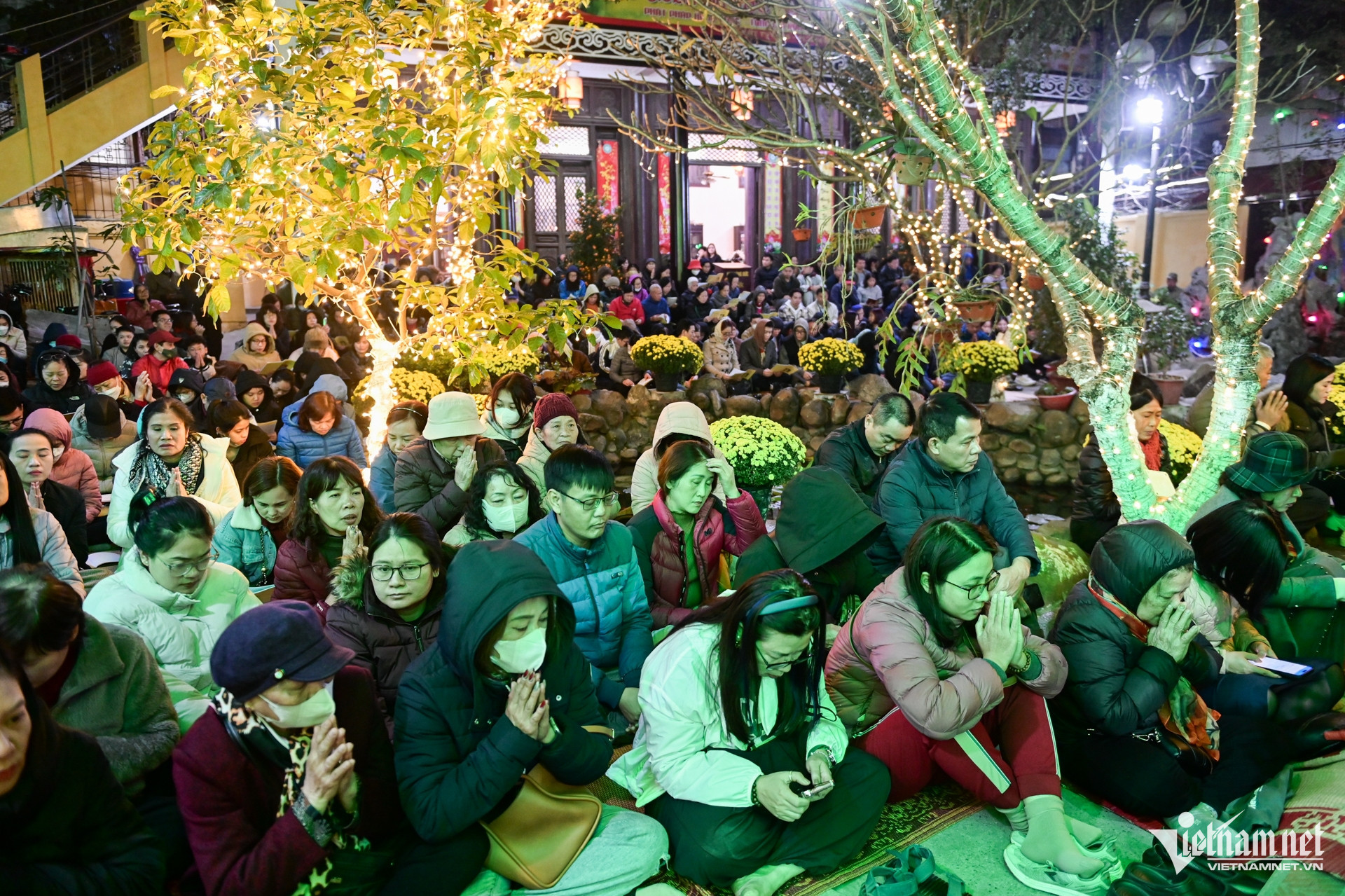
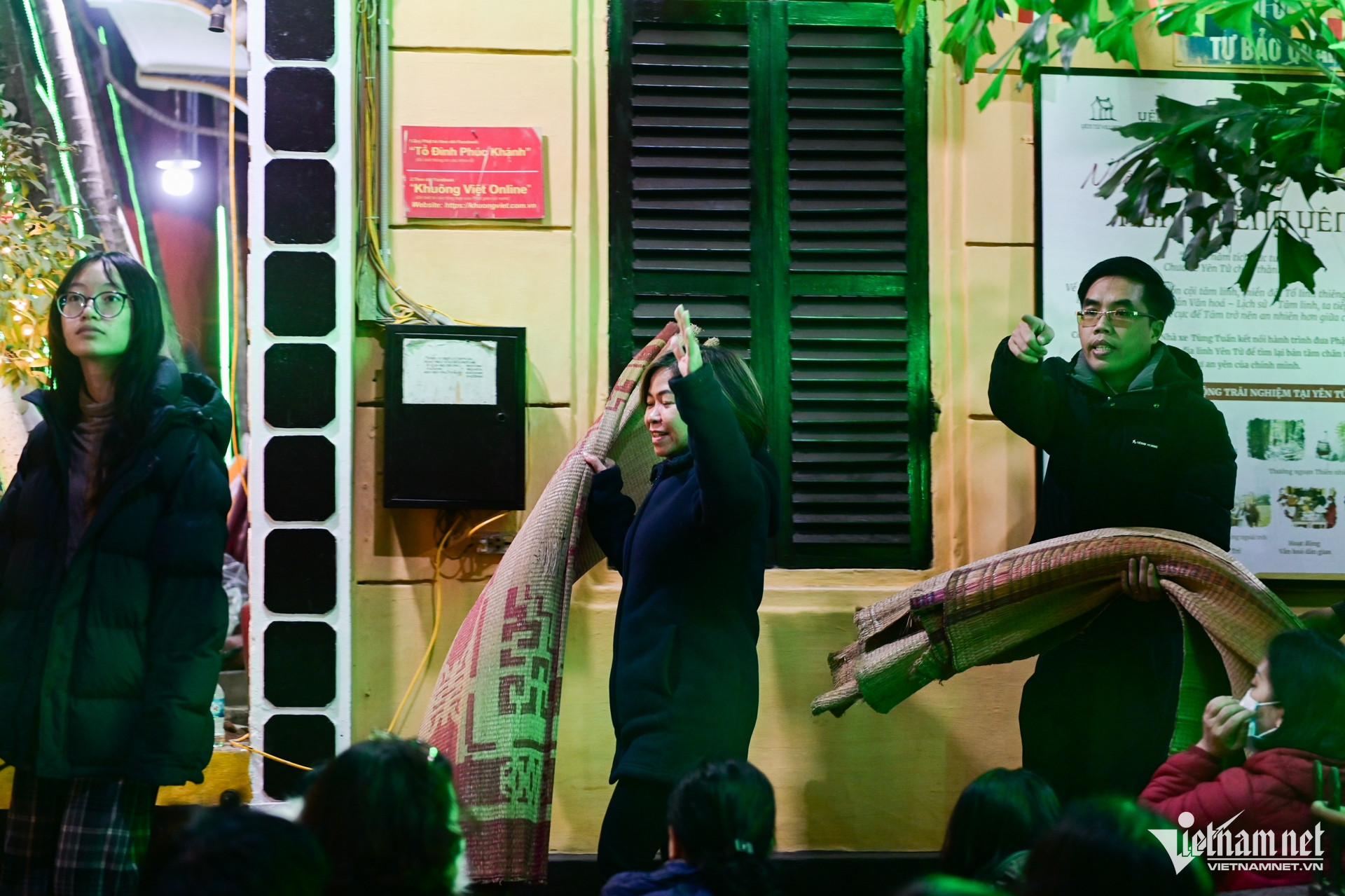
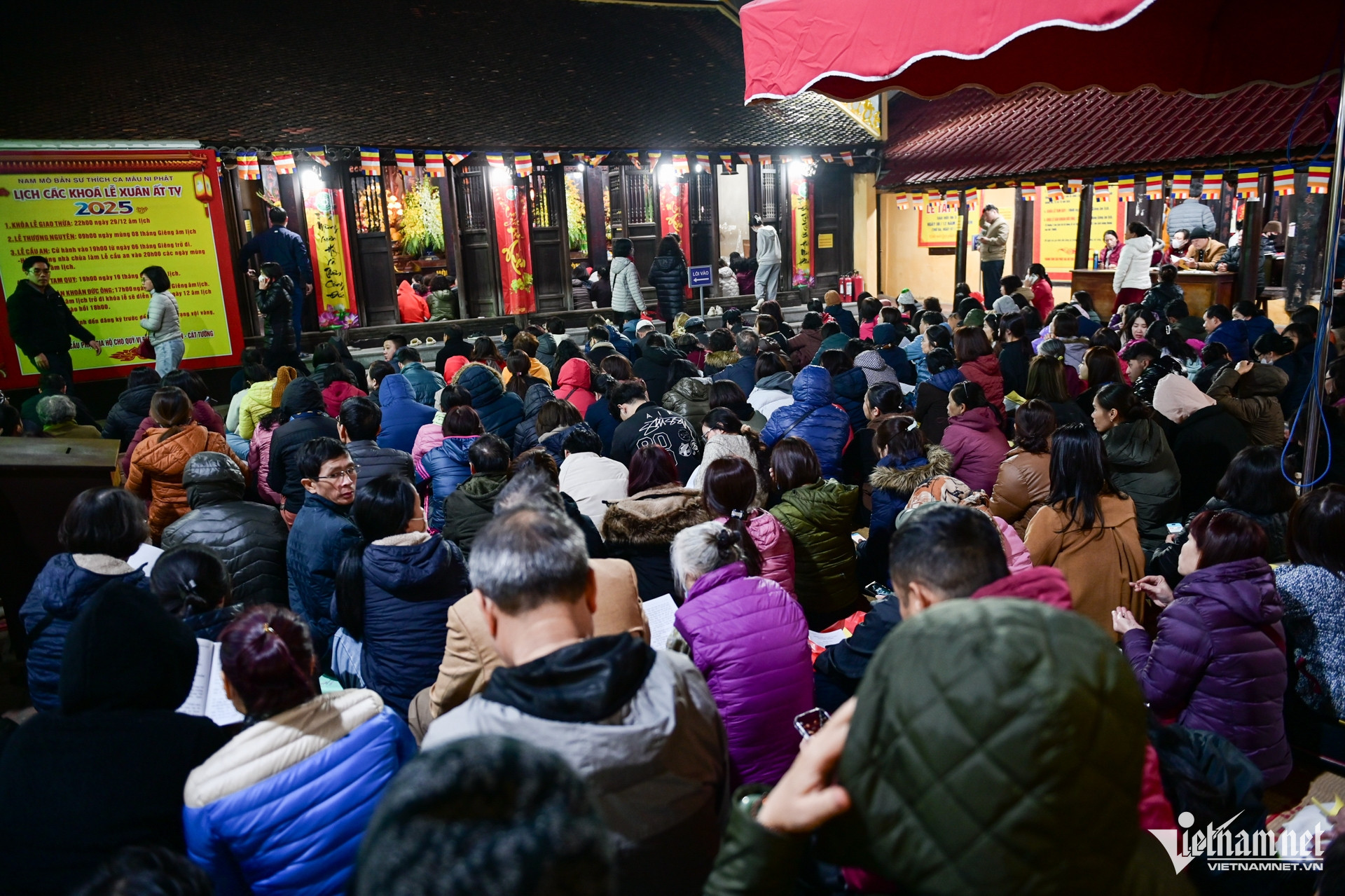
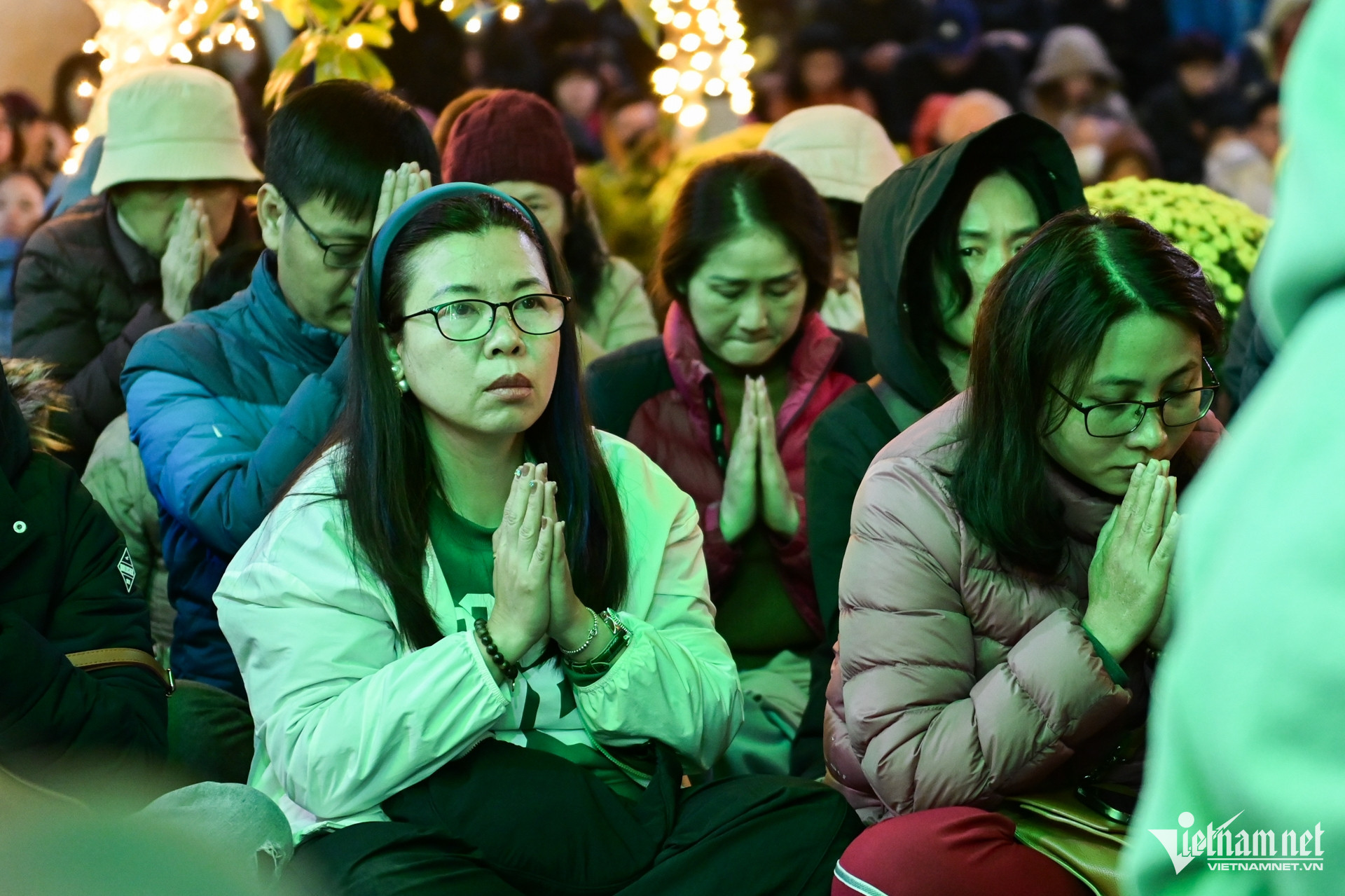
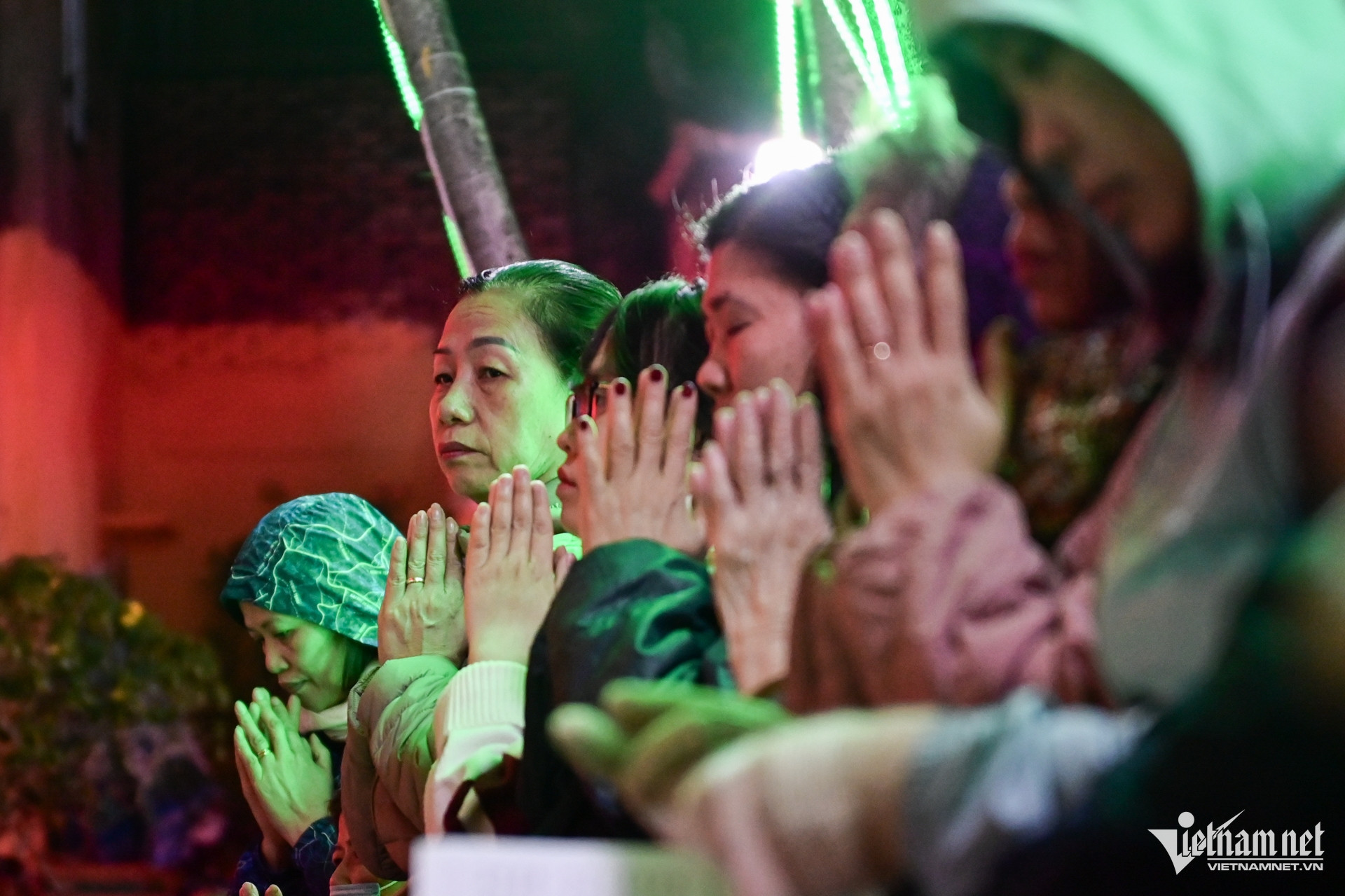

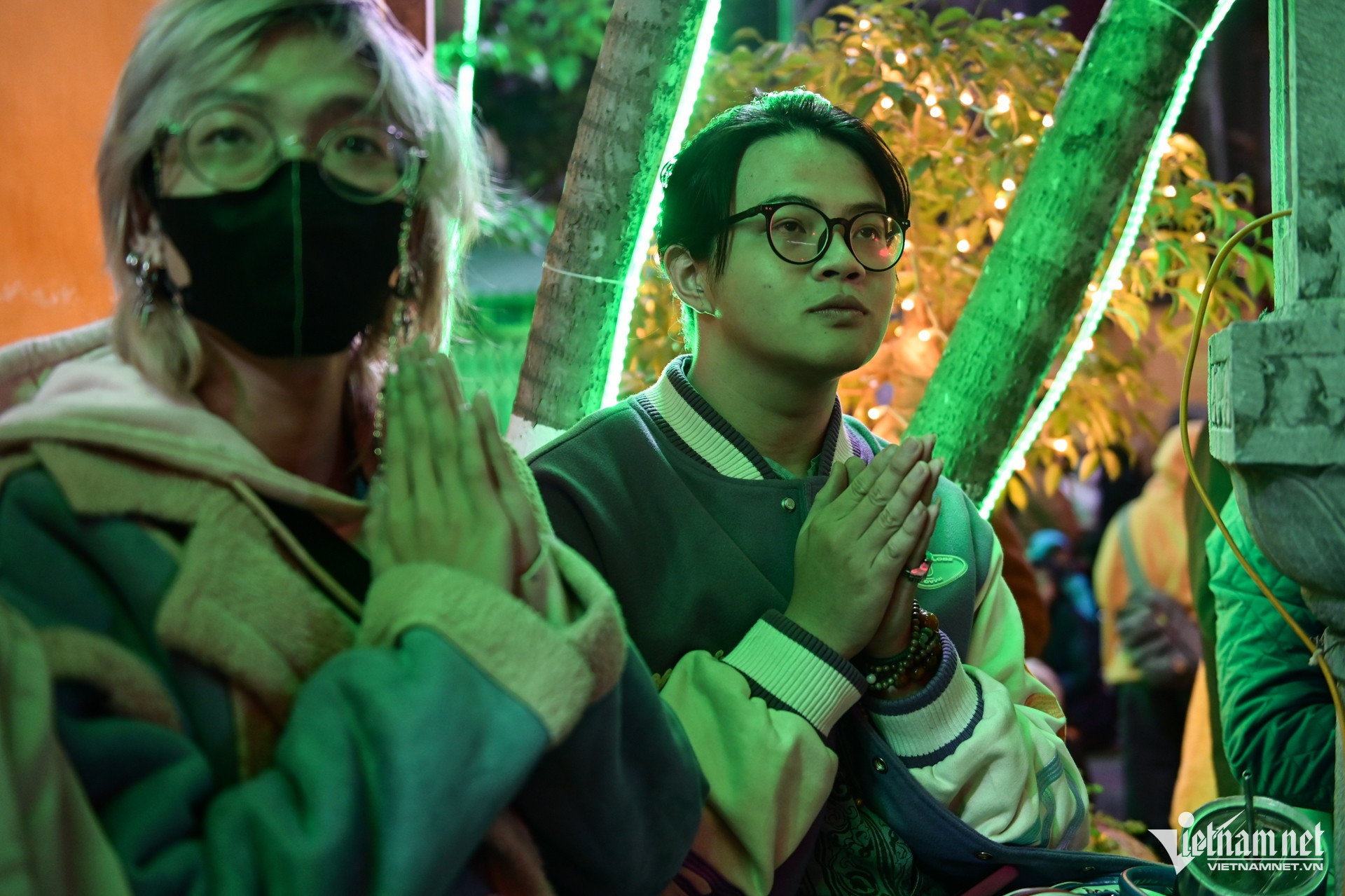
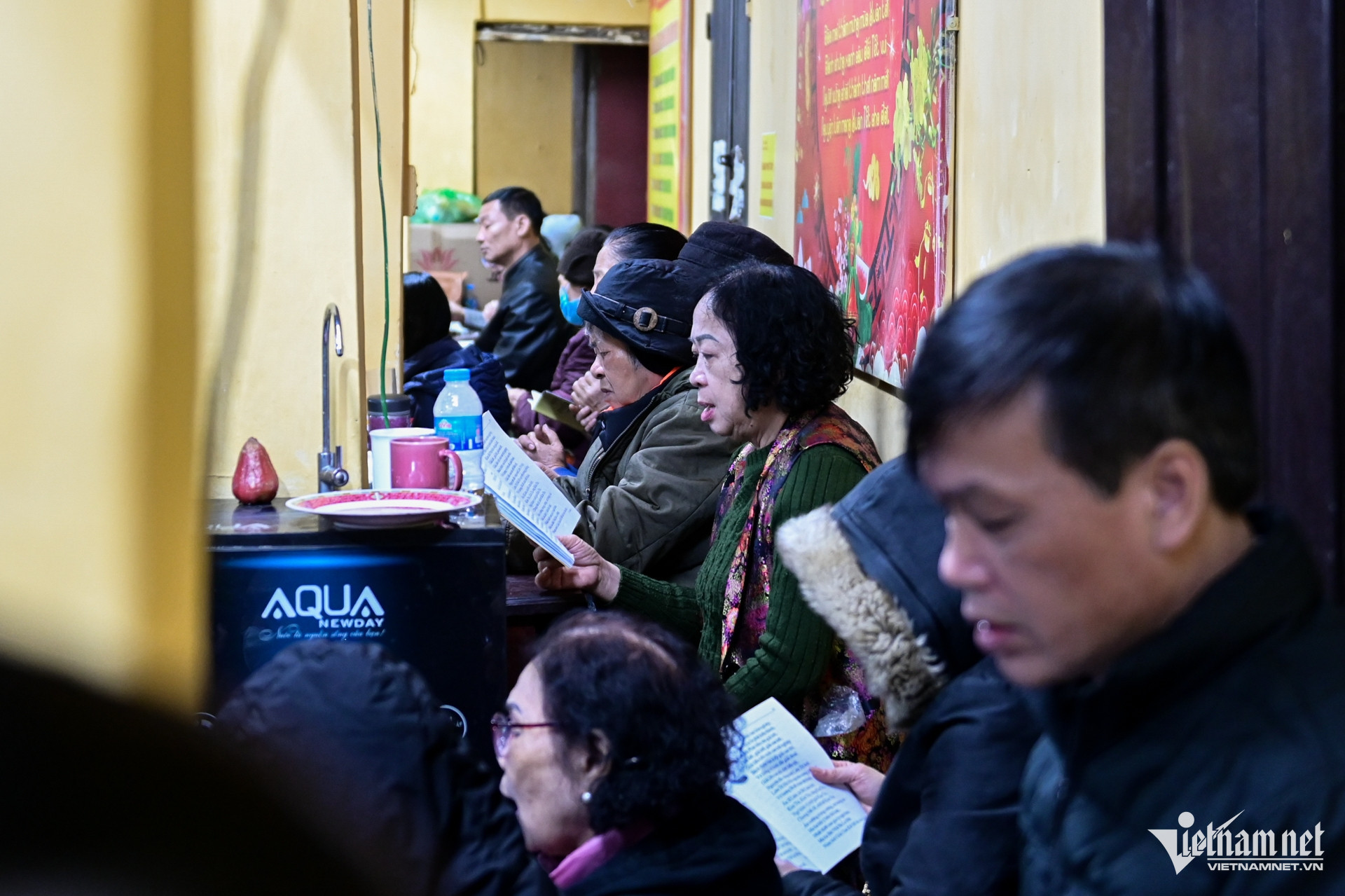
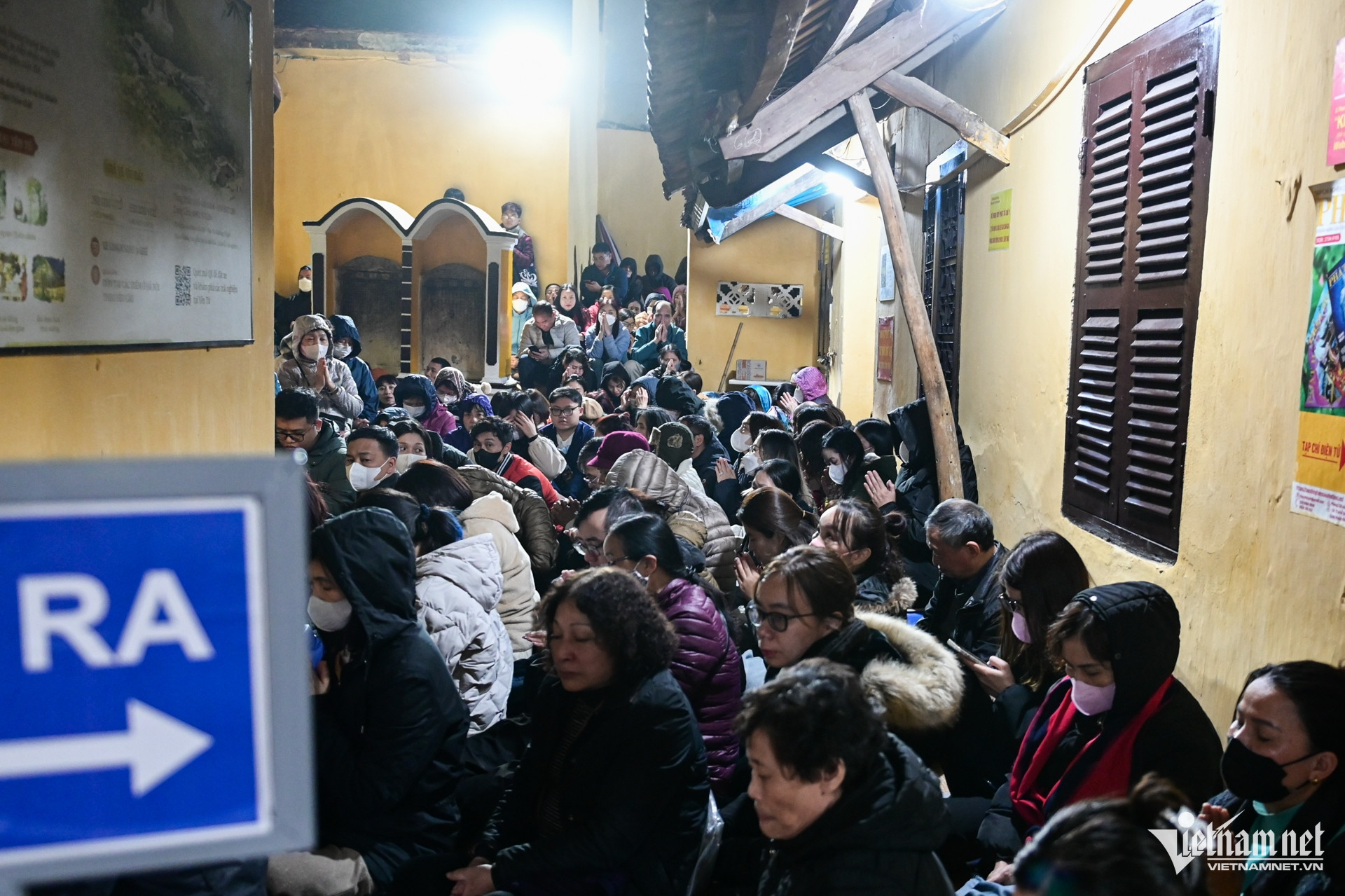
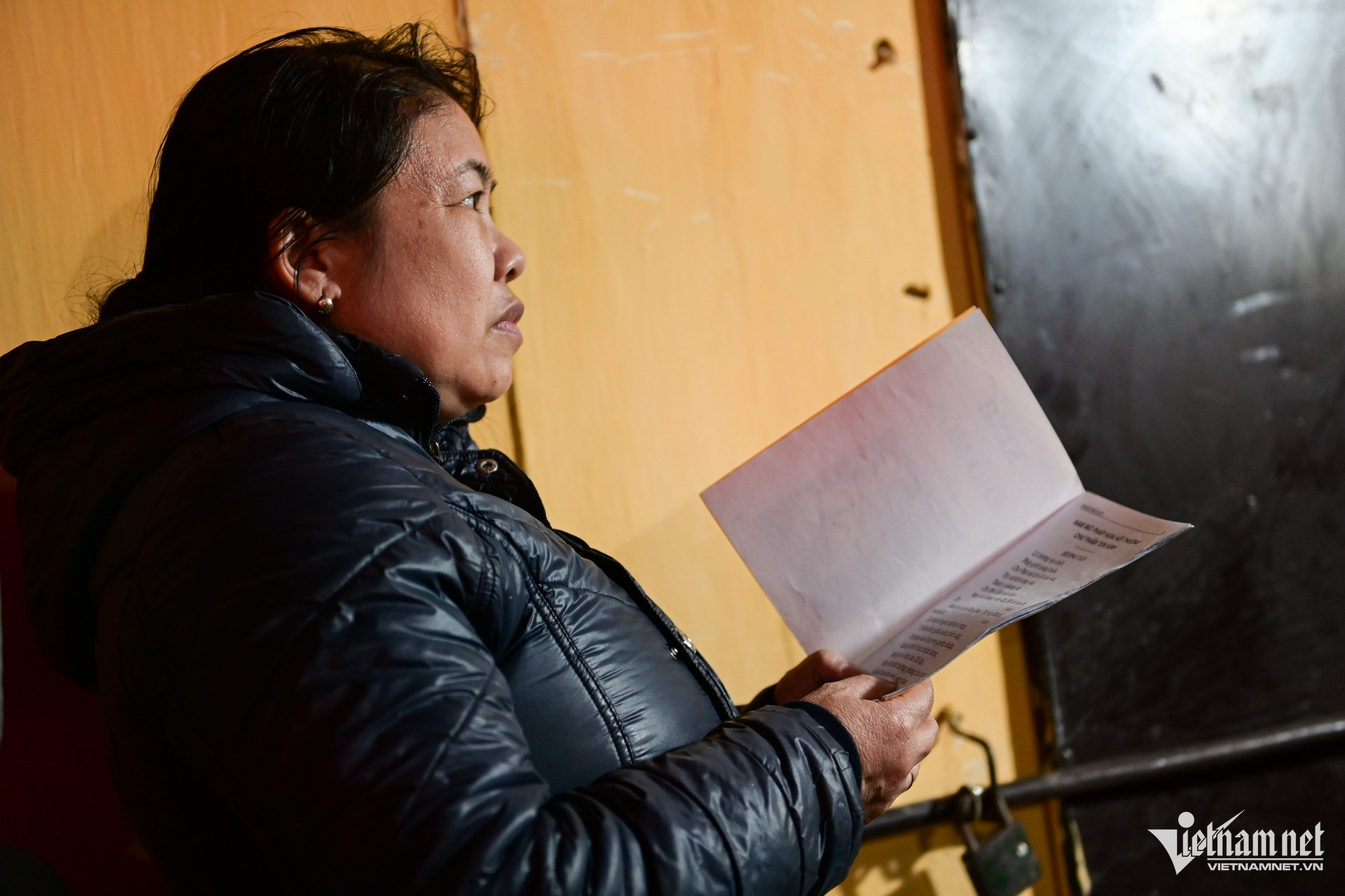
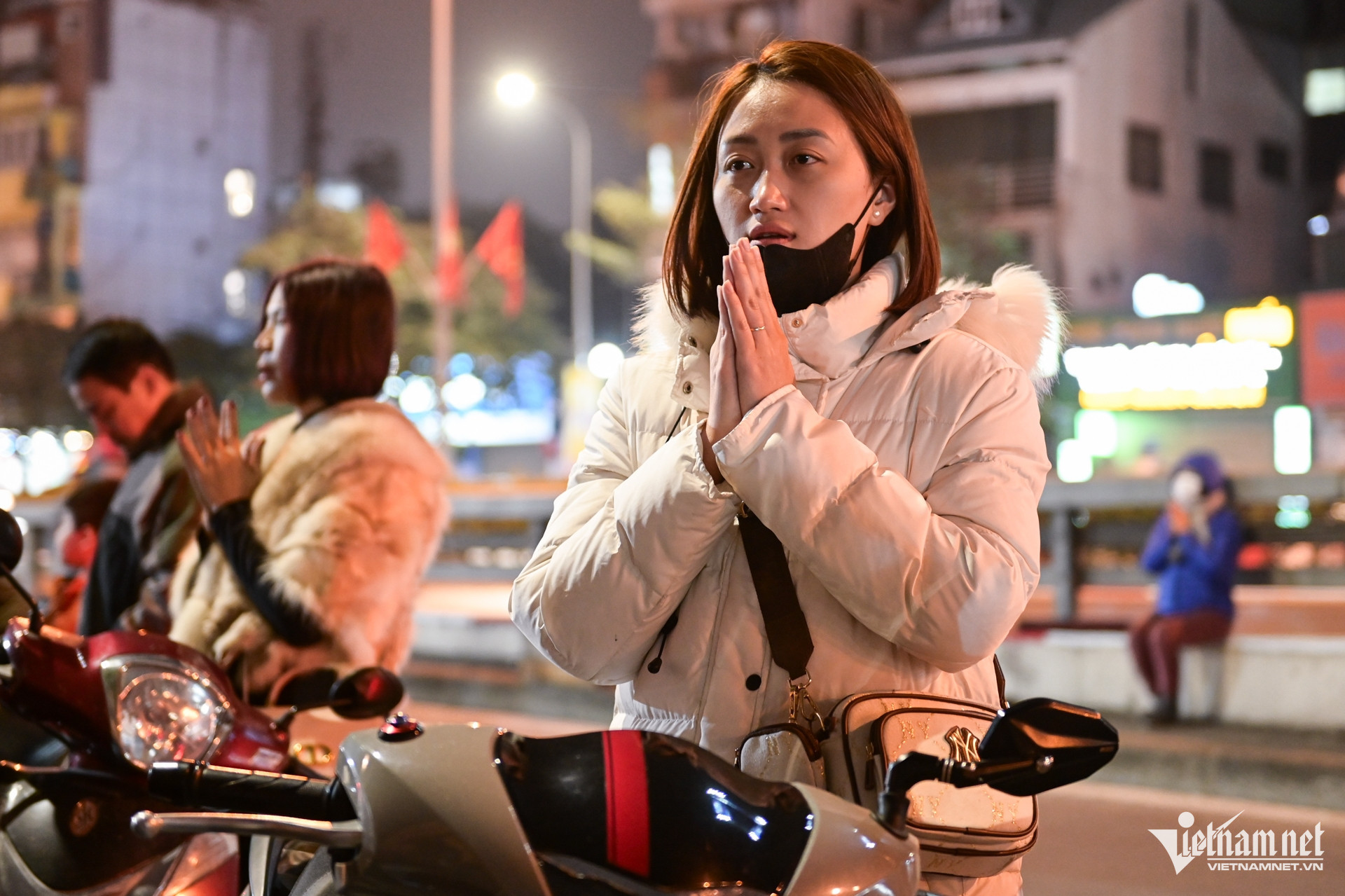
Nguyen Hue